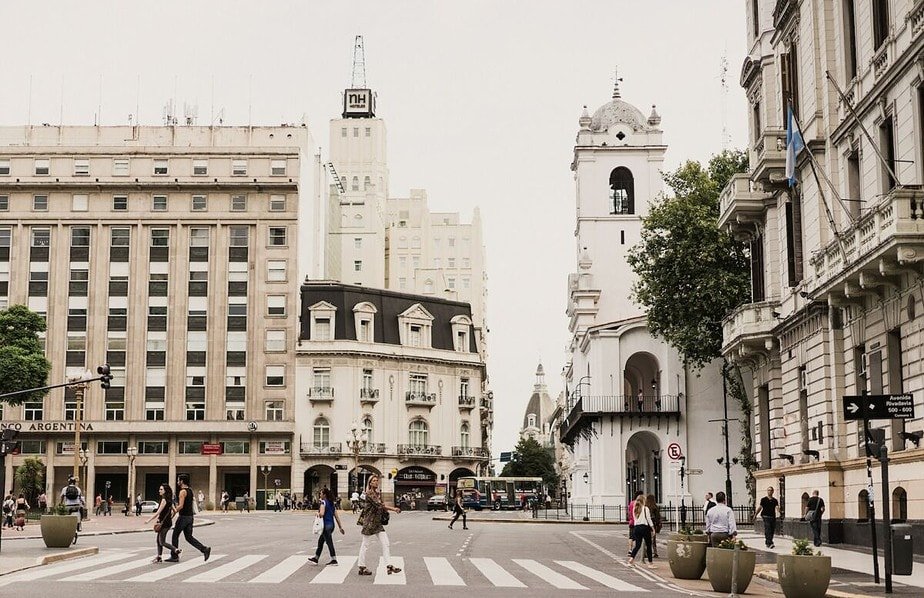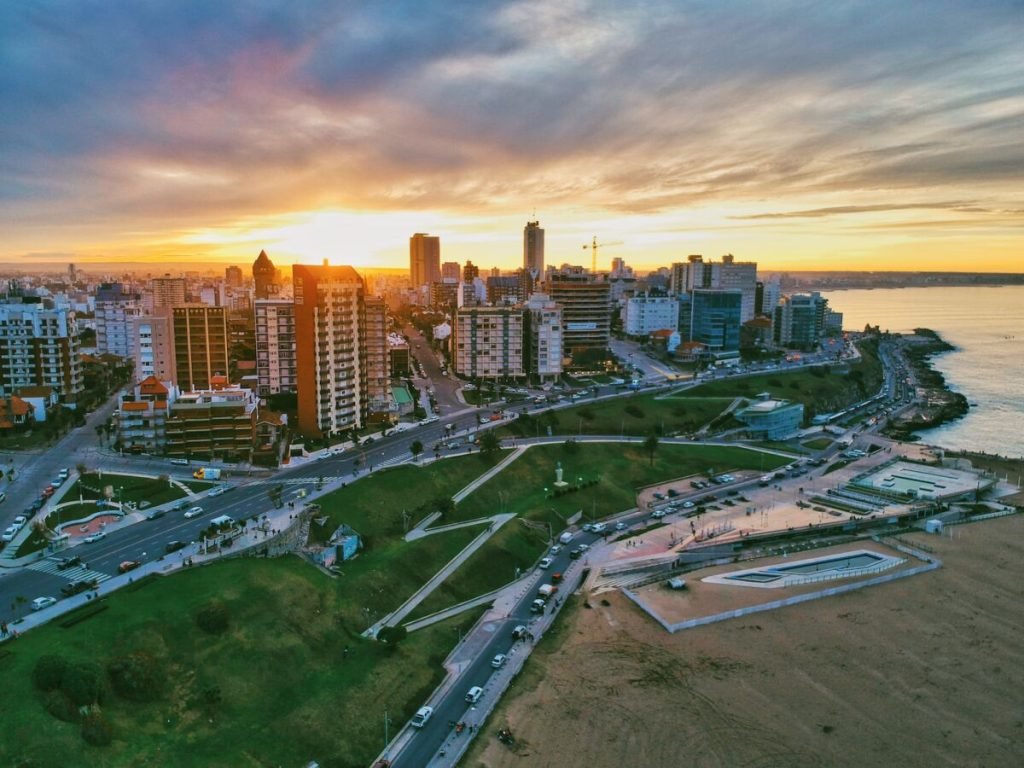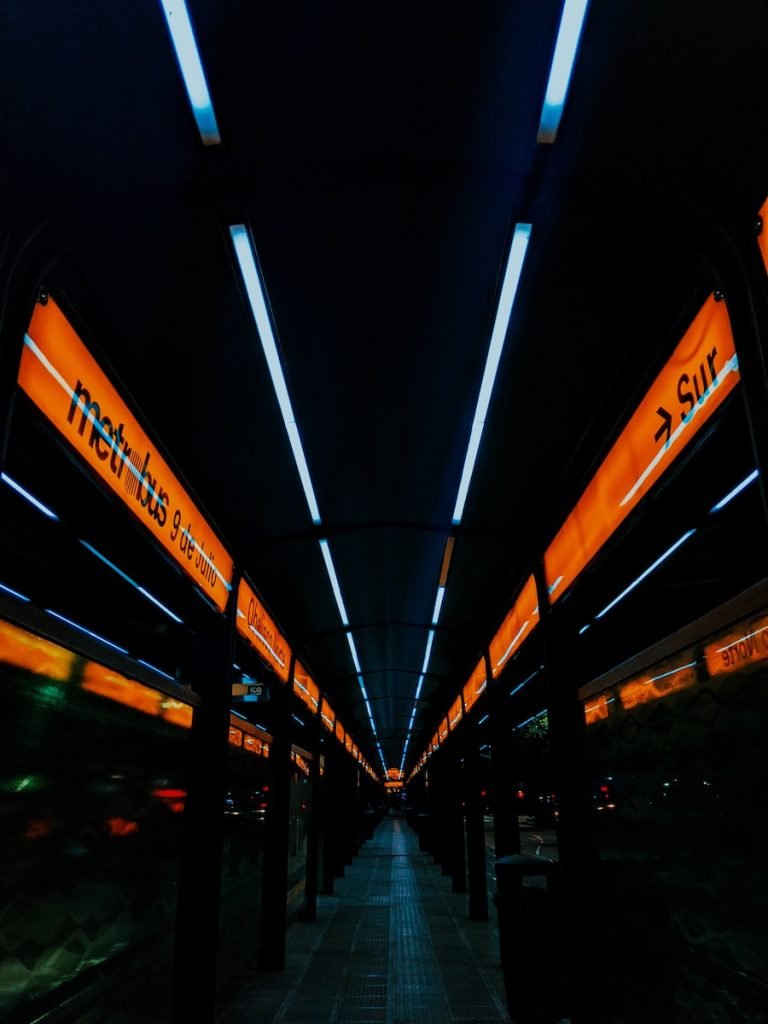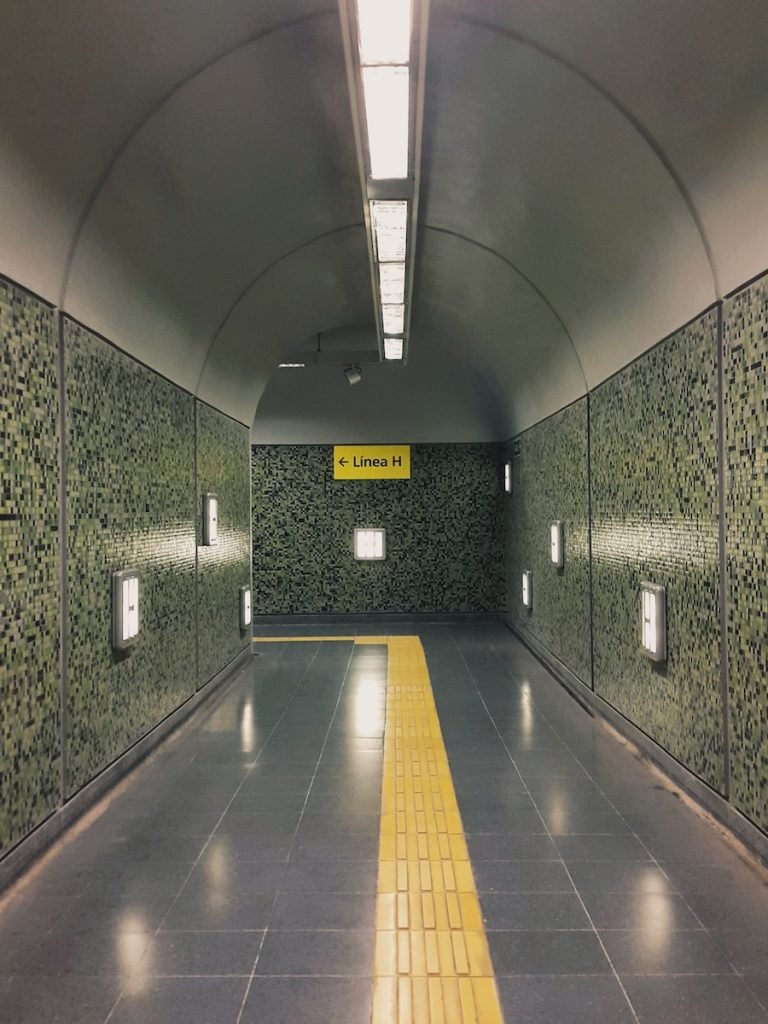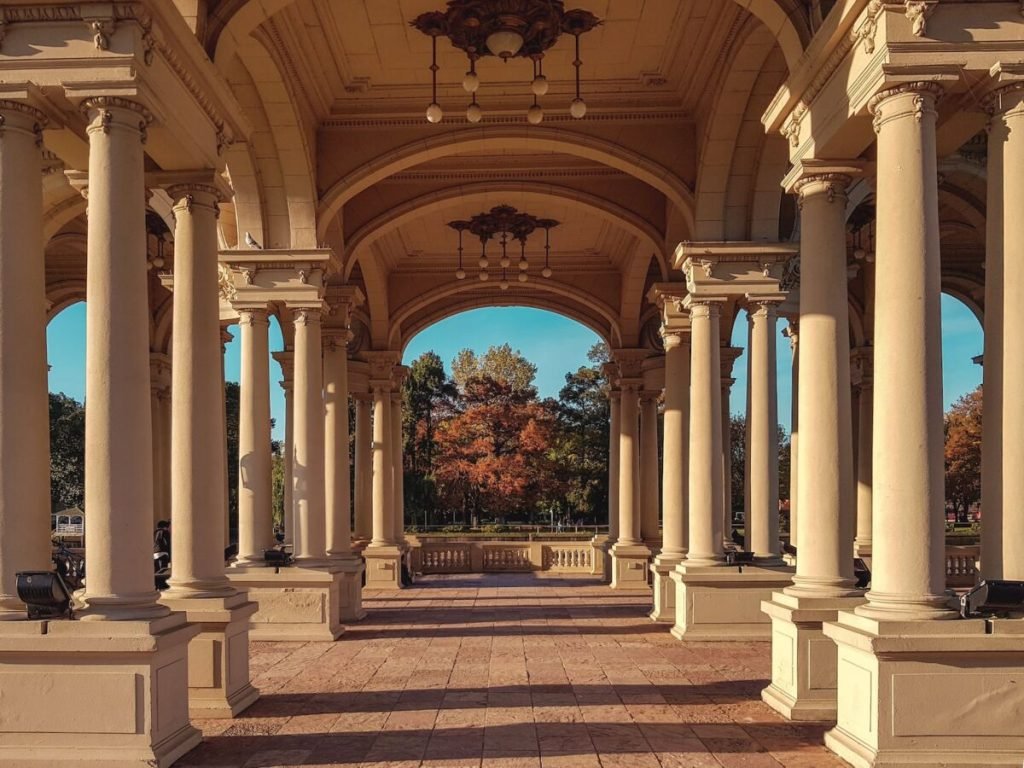Buenos Aires for digital nomads, why not? Buenos Aires, the vibrant capital of Argentina, has been attracting digital nomads from all over the world. The city entices remote workers with its unique blend of Latin American culture, lively nightlife, and affordable living expenses. As a cosmopolitan city with a rich European influence, Buenos Aires offers digital nomads an immersive experience that combines work, adventure, and a taste of the diverse Argentine lifestyle.
The city boasts a well-developed infrastructure, ensuring fast and stable internet connections in many of its trendy cafes and coworking spaces. Popular neighborhoods for digital nomads in Buenos Aires include Palermo, San Telmo, and Belgrano, each with its distinct character and charm. Despite its many favorable accommodations, it’s important to note that the city’s best features and experiences may go unnoticed by those who do not speak or understand Spanish. Being aware of local customs, safe neighborhoods, and the occasional traffic challenges will enable digital nomads to thrive in Buenos Aires and embrace a unique cultural experience.
Why Choose Buenos Aires
Thriving Digital Nomad Community
Buenos Aires has become a popular destination for digital nomads from all over the world, providing a strong sense of community. The city offers many coworking spaces and cafés where remote workers can connect with fellow nomads to share experiences and collaborate. Furthermore, a high level of English proficiency among the locals makes it easy for expats to integrate and build connections.
Art and Culture Scene
The city’s rich cultural heritage provides a vibrant and inspiring atmosphere for digital nomads. Buenos Aires is famous for its historic architecture, music and dance, especially tango, and a thriving street art scene. There are numerous galleries, museums, and cultural events throughout the year, providing ample opportunities to explore and appreciate Argentina’s artistic and historical offerings.
Affordable Cost of Living
Compared to other major cities in Latin America and around the world, Buenos Aires offers a relatively low cost of living. Rent for decent apartments in safe neighborhoods is much more affordable than in many other cities. Additionally, local markets offer inexpensive and high-quality fruits, vegetables, and meats, making it easy to maintain a healthy lifestyle without breaking the bank.
- Average rent for a one-bedroom apartment in city center: ~$500
- Meal at an inexpensive restaurant: ~$6
Vibrant Nightlife and Food Scene
Buenos Aires is renowned for its nightlife, with an abundance of bars, clubs, and live music venues to suit everyone’s tastes. The city’s culinary scene is another major attraction, offering a diverse range of traditional Argentine dishes and international cuisines. From the world-famous Argentine beef to traditional empanadas, delicious Italian and Asian cuisine, and an ever-growing vegetarian and vegan scene, there is always something new and enticing to try.
Climate and Quality of Life
The climate in Buenos Aires is relatively mild, with warm summers and mild winters. This balance allows residents and digital nomads to enjoy a comfortable lifestyle year-round. The city’s excellent public transport system, friendly people, and high-quality amenities contribute to an overall high quality of life for digital nomads and long-term residents.
Popular Neighborhoods
Palermo
Palermo is one of the trendiest and most popular neighborhoods in Buenos Aires, known for its hipster vibe, street art, boutique shops, and excellent nightlife. The area is divided into sub-neighborhoods, such as Palermo Soho and Palermo Hollywood, offering a variety of coworking spaces and cafes for digital nomads. Palermo’s central location, vibrant atmosphere, and wide range of accommodation options make it an ideal choice for digital nomads and long-term travelers.
Recoleta
Recoleta is a Parisian-style neighborhood that serves as a cultural hub, filled with museums, attractions, and upscale restaurants and stores. This area offers a more sophisticated and elegant vibe, compared to the bohemian atmosphere of Palermo. Recoleta is a great choice for digital nomads seeking a quieter, more refined neighborhood with plenty of cultural experiences.
San Telmo
San Telmo is an authentic Buenos Aires experience, with its cobblestoned streets, antique shops, bars, and restaurants. This neighborhood often features tango dancers, markets, and street artists, providing a unique and lively atmosphere. San Telmo’s rich history and distinct character make it a fascinating place for digital nomads to explore and experience Argentine culture.
Belgrano
Belgrano is a large residential neighborhood that combines both modern and historical elements. The area features a mix of parks, shopping centers, and trendy restaurants, making it an excellent choice for digital nomads looking for a balanced lifestyle. Belgrano is also known for its vibrant Chinatown, which adds a multicultural touch to the area.
Retiro
Retiro is a central neighborhood, conveniently located near the city’s main transportation hubs. The area is home to NomadHub, a co-living and co-working space that offers smart rooms, workspaces, fast Wi-Fi, and a strong community spirit. Retiro is an ideal starting point for digital nomads who are new to Buenos Aires and want to familiarize themselves with the city before setting up independently.
Puerto Madero
Puerto Madero is a modern waterfront district that features upscale hotels, luxurious apartments, and fine-dining options. The area is popular among digital nomads who seek a more high-end lifestyle while staying in Buenos Aires. Puerto Madero also offers a range of coworking spaces and easy access to other neighborhoods, making it a practical choice for remote workers.
Cabildo
Cabildo is a historic neighborhood with a distinctly local atmosphere. The area features traditional architecture, local shops, and charming cafes, providing digital nomads with an authentic taste of Buenos Aires life. Cabildo is a great option for those looking to dive into Argentine culture while enjoying a comfortable and convenient base for remote work.
Co-Working and Co-Living Spaces
Buenos Aires is an attractive destination for digital nomads due to its vibrant culture, affordable cost of living, and availability of suitable workspaces. The city features a growing number of co-working and co-living spaces that cater to the needs of remote professionals from around the world.
WeWork
WeWork is a well-known, global co-working space provider and has multiple locations in Buenos Aires. They offer a range of membership options, including shared desks, dedicated desks, and private offices. WeWork locations provide various amenities such as high-speed Wi-Fi, conference rooms, and communal areas where digital nomads can network and collaborate.
La Maquinita Co
La Maquinita Co is a popular co-working space in Palermo Hollywood, known for its vibrant atmosphere and creative community. The space offers shared desks, conference rooms, and a fully equipped kitchen. It also organizes workshops and events for its members, promoting collaboration and networking opportunities.
Urban Station
Urban Station is another notable co-working space in Buenos Aires. Located in trendy neighborhoods like Palermo Soho and San Telmo, their spaces are designed with a modern aesthetic and offer various services including shared desks, meeting rooms, and a cafeteria. Urban Station memberships generally range from daily passes to monthly subscriptions, providing flexibility for digital nomads.
Coworking Spaces
Apart from the well-established places like WeWork, La Maquinita Co, and Urban Station, Buenos Aires offers a plethora of other co-working spaces for remote workers. Some notable options include:
- Manawa Coworking: A relaxed space with a friendly community, efficient amenities, and monthly membership rates starting at $50 USD.
- Huerta Coworking: This space encourages collaboration with an open-plan layout and provides additional services such as printing, scanning, and personal lockers.
These co-working spaces typically provide digital nomads with essential amenities like high-speed Wi-Fi, access to office equipment, and a comfortable atmosphere where they can focus on work and connect with others.
Buenos Aires, with its wide array of co-working and co-living spaces, caters to the growing needs of digital nomads, making it an increasingly popular destination for remote professionals in search of a vibrant and supportive work environment.
Cafes for Remote Work
Café Registrado
Café Registrado is a popular spot for digital nomads and remote workers in Buenos Aires. With its comfortable atmosphere, reliable Wi-Fi, and delicious coffee, it is an ideal location for those looking to get work done in a cozy setting. The friendly staff and ample seating make it a welcoming place to spend a few hours working and enjoying the Argentine café culture.
In addition to high-quality coffee, Café Registrado offers a variety of pastries and snacks to keep remote workers fueled throughout the day. The café also has a range of amenities that are essential for digital nomads, such as:
- Stable Wi-Fi connection
- Plentiful power outlets
- Quiet, focused atmosphere
Café Registrado is located in the Palermo neighborhood, a trendy and bustling area that is perfect for remote workers looking for an engaging environment. Nearby, you will find various coffee shops, creative coworking spaces, and plenty of dining options.
Vive Café
Another great option for remote workers in Buenos Aires is Vive Café. This lively café is known for its friendly staff, Colombian coffee, and pastries. Located in the Palermo Hollywood area, it offers a bright space with great lighting, making it a comfortable and pleasant place to work.
Key amenities at Vive Café include:
- Consistent internet connection
- Delicious coffee and pastries
- Ambient atmosphere
As you explore Buenos Aires, you’ll find many more cafes and coffee shops suitable for remote work. Keep an eye out for establishments offering free Wi-Fi, plenty of seating, and a calm and focused environment. With the right spot, you can work productively while enjoying the vibrant culture and lifestyle of this beautiful city.
Language and Communication
Learning Spanish
Buenos Aires, a vibrant city with a strong local culture, is an ideal destination for digital nomads. If you plan to work remotely in this cosmopolitan city, learning Spanish is essential, as it opens doors to immerse yourself in the rich Argentine life. Non-Spanish speaking nomads may face communication challenges during their stay.
To aid your Spanish learning experience, consider enrolling in language courses, participating in language exchange meetups, or hiring a tutor. Buenos Aires offers multiple language schools, providing various course structures to suit your needs and schedules.
Networking and Meetups
One of the great aspects of the digital nomad lifestyle is the chance to network and connect with like-minded individuals. Buenos Aires has an expat community that is welcoming and supportive, offering excellent opportunities to participate in various networking events and meetups.
Some popular options include:
- Co-working spaces are prevalent in Buenos Aires, creating perfect environments for networking with fellow remote workers and entrepreneurs.
- Tango classes are not only fun ways to learn the famous Argentine dance but are also excellent opportunities to meet locals and other expats.
- Meetup.com is a valuable resource for finding various events and groups, such as language exchange gatherings, technology conferences, and outdoor activities.
- Expat forums and Facebook groups can guide you towards parties, events, and gatherings that cater specifically to international visitors and remote workers.
It’s essential to leverage the vibrant expat and digital nomad community to make connections, learn about local tips and tricks, and embrace the lively culture of Buenos Aires.
Transportation and Mobility
In Buenos Aires, public transportation is widely used and relatively affordable. The three main modes of public transport in the city are buses, subway (also known as Subte), and trains.
Buses operate citywide and are the most common form of transportation. They run day and night and cover nearly every part of the city. Fares are based on distance traveled, and the payment system utilizes a digital card called SUBE which also works on other forms of public transport.
Subte, short for “Subterraneo,” refers to the city’s subway system. There are six lines in total (A, B, C, D, E, and H), each distinguished by color, connecting the city’s main areas. Keep in mind that the Subte tends to be crowded during rush hours, and it only operates from around 5:00 am to 10:00 pm.
Trains are mainly used for commuting between central Buenos Aires and suburbs or nearby cities. These lines can also be accessed using the SUBE card, and they’re particularly useful for digital nomads staying in suburban areas.
For international and domestic flights, Buenos Aires has two major airports: Ministro Pistarini International, also known as Ezeiza, and Aeroparque Jorge Newbery. Ezeiza serves most international destinations, while Aeroparque is primarily reserved for domestic and regional flights. Both airports can be reached by public transport and shuttles, taxis, or private transfer services.
Finally, for regional travel, there are excellent bus connections to neighboring countries, and ferries link Buenos Aires to Montevideo and Colonia in Uruguay. Be sure to plan and budget accordingly, as living costs in Buenos Aires are estimated at around US$1100 per month.
Visa and Legal Considerations
When planning your stay in Buenos Aires as a digital nomad, it’s essential to understand the visa and legal requirements. Argentina grants most travelers visa-free entry for 90 days upon arrival. This is usually enough for a short-term stay. However, if you wish to extend your time in the city, you’ll need to explore other options.
If you decide to stay longer than 90 days, you have two primary options:
- Visa extension (prórroga): Apply for a visa extension before your initial 90 days expire. This process can be time-consuming, so it’s best to start early.
- Border hopping: Travel to a neighboring country, such as Uruguay or Chile, and re-enter Argentina to reset your 90-day allowance. Keep in mind that border authorities may become suspicious if you do this frequently.
For those looking to work for longer periods in Argentina, the country offers a digital nomad visa. To apply for this visa, you’ll need to provide:
- A signed application note with your personal data and intended independent work activity
- A brief Curriculum Vitae detailing your work experience and level of education or training
- Your passport
Please note that overstaying your visa without applying for an extension or leaving the country can result in a moderate fine upon departure. It’s essential to stay informed and follow Argentina’s immigration laws to avoid any issues during your time as a digital nomad.
Safety and Health
Crime and Safety
Buenos Aires is a vibrant and bustling city, which means that keeping safe while exploring should always be a top priority. Petty crime, such as pickpocketing and bag snatching, is common in busy tourist areas and on public transportation. To minimize the risk of becoming a victim, follow these general safety precautions:
- Keep your bags and belongings secure and avoid displaying valuables, such as smartphones and cameras.
- Be aware of your surroundings and exercise caution when walking through crowded areas or at night.
- Use trusted transportation options, such as registered taxis or ridesharing apps like Uber.
It is also important to mention that there are some unsafe areas in Buenos Aires, and it is recommended to avoid them. Seek the advice of locals or online sources to assist you in identifying and steering clear of these areas.
COVID-19 Protocols
To ensure the health and safety of residents and visitors alike, Buenos Aires has implemented COVID-19 protocols in line with Argentina’s national policies. These regulations may change over time and should be checked regularly. Currently, the following measures are in place within the city:
- Face masks are required in public spaces, including on public transportation.
- Social distancing is encouraged, with a minimum 1.5-meter distance between individuals.
- Sanitization and temperature checks may be required before entering certain establishments.
- Capacity limits and specific opening hours may apply for restaurants, bars, and other businesses.
Digital nomads staying in Buenos Aires should stay informed about the latest local COVID-19 guidelines and comply with any mandatory measures.
Local Currency and Finances
Buenos Aires, the capital of Argentina, has become a popular destination for digital nomads due to its low cost of living and appealing cultural atmosphere. The local currency in the city is the Argentine Peso (ARS), which can offer significant advantages for digital nomads earning in US Dollars (USD), considering the current exchange rate.
Digital nomads earning in USD can expect to experience a drastic change in their quality of life when living in Buenos Aires, given the current weak state of the Argentine Peso. This means that daily expenses such as rent, food, and entertainment become significantly more affordable when compared to similar cities in Latin America or other popular nomad destinations.
As a digital nomad, it’s essential to be aware of the current exchange rate when planning your time in Buenos Aires. It’s vital to keep in mind that the official exchange rate might differ from the more commonly used “blue market” rate. This unofficial rate may offer better value for exchanging USD to ARS. You can find updated rates through various online sources to keep track of the most beneficial exchange options.
Here is a brief comparison between approximate costs in USD and ARS:
- Rent for a one-bedroom apartment in a desirable neighborhood: USD 300-600 / ARS 19,800-39,600
- Monthly public transportation pass: USD 10 / ARS 660
- Meal at a mid-range restaurant: USD 10 / ARS 660
- Cup of coffee at a cafe: USD 1.50 / ARS 99
When working out your budget for living in Buenos Aires, consider that monthly living expenses can range between USD 500 to USD 1,000, depending on your lifestyle choices and accommodation preferences.
In summary, digital nomads earning in USD and familiarizing themselves with the local currency situation can take advantage of the weak Argentine Peso and enjoy an affordable, high-quality lifestyle in Buenos Aires.
Regional Travel
Uruguay
Uruguay is a popular destination for digital nomads looking to explore the region around Buenos Aires. The ferry service offers a quick and convenient way to reach Montevideo, the capital of Uruguay, as well as Colonia del Sacramento, a UNESCO World Heritage Site. In Uruguay, digital nomads can enjoy a slower pace of life, stunning beaches, and charming towns.
Chile
Chile, located to the west of Argentina, offers a diverse landscape for digital nomads to explore. From the vibrant capital city of Santiago to the stunning Atacama Desert and the picturesque wine country valleys, Chile offers a range of experiences for remote workers. Regular flights from Buenos Aires connect you to various destinations within Chile for easy exploration.
Brazil
For a larger adventure, digital nomads can venture to Brazil, home to iconic destinations like Rio de Janeiro and São Paulo. Brazil offers a distinctive blend of cultural experiences, world-famous beaches, and natural wonders such as the Amazon rainforest and Iguazu Falls. It is a great destination to network with other remote workers and immerse yourself in South America’s largest country, with direct flights from Buenos Aires.
Patagonia
Patagonia is a vast region shared by Argentina and Chile, offering breathtaking landscapes, outdoor activities, and unique wildlife experiences. From Buenos Aires, digital nomads can travel to popular spots like Bariloche, Ushuaia, or El Calafate to explore the Andes Mountains or witness the mesmerizing beauty of the Perito Moreno Glacier. This region is ideal for remote workers seeking an awe-inspiring escape awe-inspiring from urban life.
Originally posted 2023-03-12 15:10:11.

